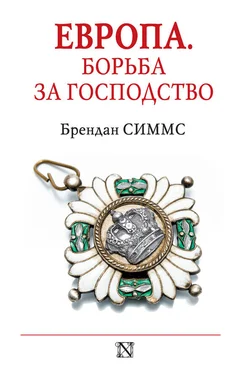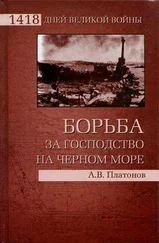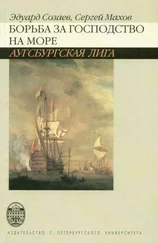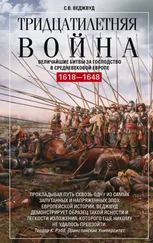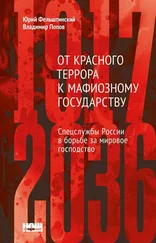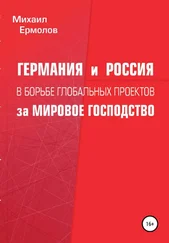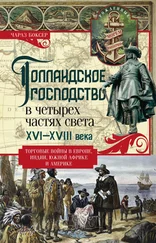Peter Krüger, ‘Die Beurteilung der Reichsgründung und Reichsverfassung von 1871 in den USA’, in Norbert Finzsch et al., Liberalitas. Festschrift für Erich Angermann zum 65. Geburtstag (Stuttgart, 1992), pp. 263–83 (quotations pp. 271 and 273).
Paul W. Schroeder, ‘The lost intermediaries: the impact of 1870 on the European system’, International History Review, 6, 1 (1984), pp. 1–27, especially pp. 2–3, 8 and 11–12.
Sudhir Hazareesingh, ‘Republicanism, war and democracy: the Ligue du Midi in France’s war against Prussia, 1870–1871’, French History, 17, 1 (2003), pp. 48–78, especially pp. 50–51.
Bertrand Taithe, Defeated esh. Welfare, warfare and the making of modern France (Manchester, 1999), pp. 71–98, and Citizenship and wars: France in turmoil, 1870–1871 (London and New York, 2001).
Jacques Bariety, ‘Das deutsche Reich im französischen Urteil, 1871–1945’, in Hildebrand (ed.), Das deutsche Reich im Urteil der grossen Mächte, pp. 203–18 (quotation p. 208).
Allan Mitchell, Victors and vanquished. The German in uence on Army and Church in France after 1870 (Chapel Hill, 1984), especially pp. 41–8, and Rachel Chrastil, Organising for war. France, 1870–1914 (Baton Rouge, 2010), pp. 157–8 and passim.
Heinrich Lutz, ‘Zur Wende der österreichisch-ungarischen Aussenpolitik 1871. Die Denkschrift des Grafen Beust für Kaiser Franz Joseph vom 18. mai’, in Mitteilungen des österreichischen Staatsarchivs 25 (1972), pp. 169–84, especially pp. 177–8 (‘Mitteleuropa’, p. 180).
Bridge, Habsburg monarchy, p. 94.
W. E. Mosse, The European powers and the German Question, Appendix C: ‘The Russian national press and the “German Peril”, 1870–71’, pp. 391–2.
Deryck Schreuder, ‘Gladstone as “Troublemaker”: Liberal foreign policy and the German annexation of Alsace-Lorraine, 1870–1871’, Journal of British Studies, 17 (1978), pp. 106–35 (quotation p. 119). I am grateful to Eddie Fishman for conversations on the subject.
Karina Urbach, Bismarck’s favourite Englishman. Lord Odo Russell’s mission to Berlin (London, 1999), p. 208.
Klaus Hildebrand, No intervention. Die Pax Britannica und Preussen 1865/66–1869/70. Eine Untersuchung zur englischen Weltpolitik im 19. Jahrhundert (Munich, 1997), pp. 393–4 and passim.
Scott W. Murray, Liberal diplomacy and German uni cation: the early career of Robert Morier (Westport and London 2000), pp. 91–138.
William Mulligan, ‘Britain, the “German Revolution”, and the fall of France, 1870/1’, Historical Research, 84, 224 (2011), pp. 310–27.
ibid., p. 324.
Thomas Schaarschmidt, Aussenpolitik und öffentliche Meinung in Grossbritannien während des deutsch-französischen Krieges von 1870/71 (Franfurt am Main, Berne, etc., 1993), p. 132.
Michael Pratt, ‘A fallen idol: the impact of the Franco-Prussian War on the perception of Germany by British intellectuals’, International History Review, 7, 4 (1985), pp. 543–75.
Mulligan, ‘Britain, the “German Revolution”, and the fall of France’.
Edward Ingram, The British Empire as a world power (London, 2001), especially pp. 25–45. Также: James Belich, Replenishing the earth. The settler revolution and the rise of the Anglo-World, 1783–1939 (Oxford, 2009).
На мое мнение очень сильно повлияли беседы с Дэниелом Робинсоном, Джеймсом Роджерсом и Дунканом Беллом. См.: Duncan Bell, The idea of greater Britain. Empire and the future of world order, 1860–1900 (Princeton, 2007).
Max Beloff, Imperial sunset: Britain’s liberal empire, 1897–1921 (London, 1969), p. 37.
Parry, Politics of patriotism, p. 293.
William Mulligan, ‘British anti-slave trade and anti-slavery policy in East Africa, Arabia, and Turkey in the late nineteenth century’, in Brendan Simms and D. J. B. Trim (eds.), Humanitarian intervention. A history (Cambridge, 2011), pp. 257–82, especially p. 273.
Jacques Freymond and Miklós Molnár, ‘The rise and fall of the First International’, in Milorad Drachkovitch (ed.), The revolutionary Internationals, 1864–1943 (Stanford, 1966), p. 33.
«Кошмаре коалиций» ( фр .) . Примеч. ред.
Christopher Clark, Kaiser Wilhelm II. A life in power (London, 2009), p. 94.
Margaret Lavinia Anderson, Practicing democracy. Elections and political culture in imperial Germany (Princeton, 2000). See also Gerhard A. Ritter, ‘Die Reichstagswahlen und die Wurzeln der deutschen Demokratie im Kaiserreich’, Historische Zeitschrift, 275 (2002), pp. 385–403.
Thus Prince Hohenlohe-Schillingsfürst, as quoted in W. N. Medlicott and Dorothy K. Coveney (eds.), Bismarck and Europe (London, 1971), p. 138.
Lothar Gall, Bismarck. Der weisse Revolutionär (Frankfurt, 1980), p. 623.
Detlef Junker, The Manichean Trap: American perceptions of the German empire, 1871–1945 (Washington, DC), p. 14.
Bridge, Habsburg monarchy, Appendix I, p. 381.
Medlicott and Coveney (eds.), Bismarck and Europe, pp. 87–8.
Klaus Hildebrand, Das vergangene Reich. Deutsche Aussenpolitik von Bismark bis Hitler (Stuttgart, 1995), p. 33. О мнимой и реальной французской угрозе: Johannes Janorschke, Bismarck, Europa und die ‘Krieg in Sicht’ Krise von 1875 (Paderborn, 2010), pp. 146–56, and 192–4.
T. G. Otte, ‘From “War in sight” to nearly war: Anglo-French relations in the age of high imperialism, 1875–1898’, Diplomacy and Statecraft, 17, 4 (2006), pp. 693–714, especially pp. 695–7.
Louise McReynolds, The news under Russia’s old regime. The development of a mass-circulation press (Princeton, 1991), pp. 73–92.
Matthias Schulz, ‘The guarantees of humanity: the Concert of Europe and the origins of the Russo-Ottoman War of 1877’, in Simms and Trim (eds.), Humanitarian intervention, pp. 184–204 (quotation p. 184).
Этот указ, подготовленный во время пребывания канцлера в городе Бад-Киссинген, куда он часто приезжал, объявлял, что Германия намерена отказаться от завоевательных войн . Примеч. ред.
Medlicott and Coveney (eds.), Bismarck and Europe, pp. 96–7 and 102–3.
Carole Fink, Defending the rights of others. The great powers, the Jews and international minority protection, 1878–1938 (Cambridge, 2004). Высказывание британского дипломата: in Abigail Green, ‘Intervening in the Jewish Question, 1840–1878’, in Simms and Trim (eds.), Humanitarian intervention, pp. 139–58 (quotation p. 139).
Читать дальше
Конец ознакомительного отрывка
Купить книгу
